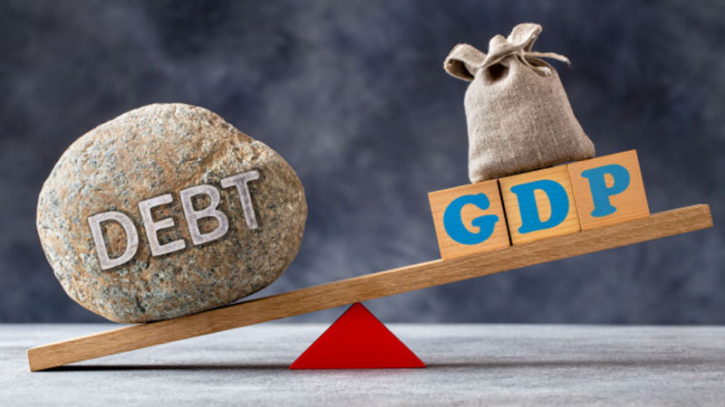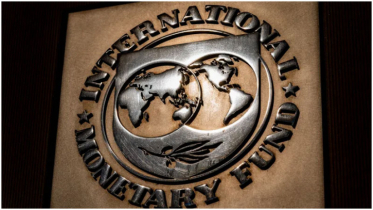Debt to GDP: What's the link?

One of the very important things that statistics professors keep screaming at their students is that “correlation is not causation.” That all too many ignore this is why we have such a mess in all of the social sciences, not just economics.
For example, World Economics has been doing some fascinating analysis of the Bangladeshi economy in this newspaper. One of those pieces is about the debt to GDP ratio. How much does the country (that is, the government) owe in debt compared to the value of all economic activity in the country?
I would mutter something about this little line, “based on the World Economics GDP database, Bangladesh's GDP, including the informal economy,” because that's not -- to my mind -- quite right. If we're measuring government debt to economic activity then we need to measure it against that economic activity that the government can tax in order to pay the debt. By definition the informal economy is that part that the government can't get its claws into. So, debt to the “white” or formal economy is what should be used.
However, there's a lovely chart there. Which shows that Bangladesh has a lower debt to GDP ratio than poorer places like India, Pakistan, and Sri Lanka. But also a lower one than richer countries like China and Japan. Still also a higher one than richer places like Brunei, Hong Kong, and Taiwan.
And, well, pull the correlation out of that. Which is to say that there isn't one. Brunei is easy, an oil producer. But the others, well, there's no particular nor real pattern there.
Our problem here is that some do say that higher borrowing correlates with greater wealth. If the government borrows to invest and direct the economy then it will become richer. Others, despicable neoliberals like me, say that higher government spending and debt reduce economic growth and thus prevent a place from becoming rich or richer.
But neither of us can really see any great support for our ideas in those figures of debt burdens to GDP per capita. Higher debt levels don't seem to have made the places with them richer, but we also don't see that they don't.
At which point we could just say well, this economics, it's hard.
It is though possible to go one level deeper here and actually start to see some correlation. Once we have correlation -- recall our stats professors, that one does not prove the other -- then we can begin to investigate why that might be so. It's having noted the correlation that leads to working out whether there is causation.
At which point we start getting to the actual answer. Which is that yes, investing makes a place richer. This we know and is obvious. So, it's potentially possible that government investment will do this. On the assumption that the government invests wisely, that that investment produces a return, then a place will get that richer. Possibly even, the government will invest better than the private sector, therefore the place will get richer than if it had been left to that private sector.
Drawing on other areas of economics we would have to insist that this is true. There are things that simply must be done and that only the government can do. In the absences of a civil court system it's near impossible to have contracts that actually work. Well, without then having a Mafia system of contract enforcement that is.
We could also note that sometimes the government spends money badly, at a loss to the economy. The high speed railway line -- HS2 -- currently being built in my native Britain at a cost of £100 billion being an example of that.
More generally we can also say that spending on redistribution doesn't grow the economy. Even if the government calls it investing in the poor, in equality, and so on. While spending on those things that actually must be done -- the law, the drains, and so on -- do grow the economy.
Which leaves us in a very boring position really. There's no direct correlation between government spending, nor the debt they run up to do it, and how rich a country is or becomes. There is a correlation and we can see the causation between what a government does with the money and that GDP level and growth. That then leaves us in the position of having to control our own government well enough that they spend our money wisely and only wisely.
Which is one of those problems that no one has wholly solved as yet.
Source: Dhaka Tribune
.png)




